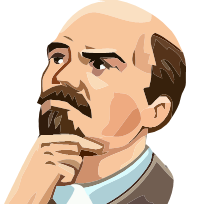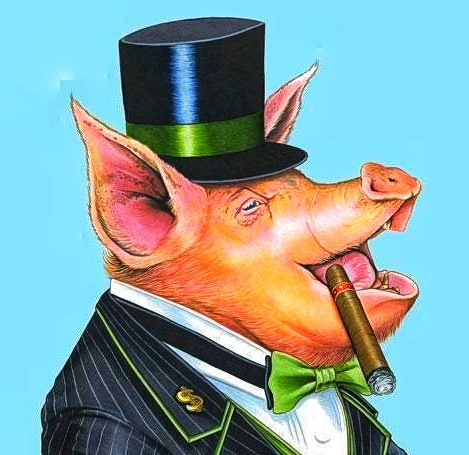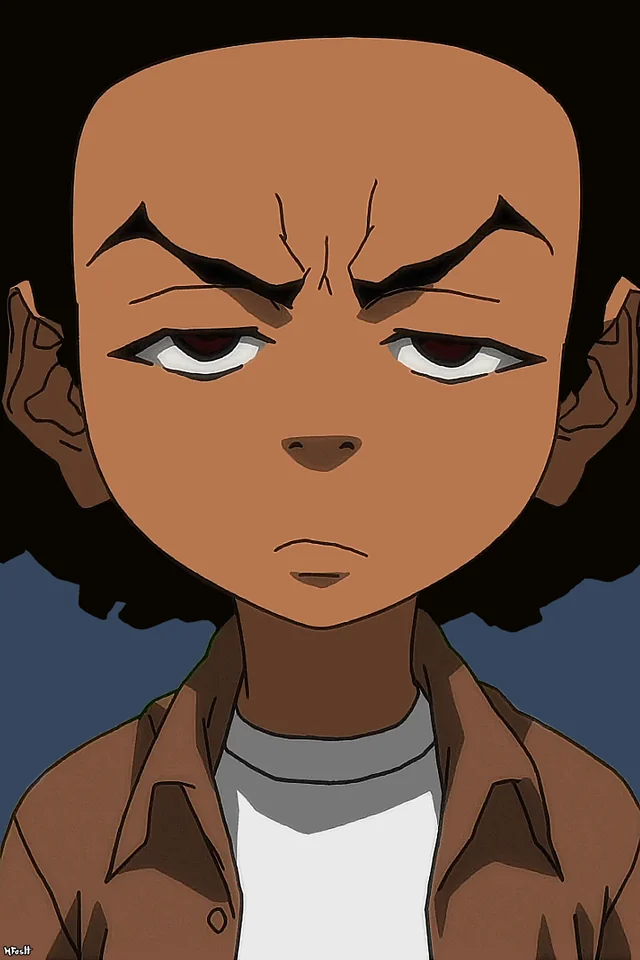My roommate has been educating himself on communism, and we have been having many great conversations on theory and what have you. He says he is a communist. However, he has come to some very different conclusions to me, and I have been going back and forth on his talking points a lot. I was wondering what you guys would think of his talking points since I have to hear them and discuss them with him a lot.
-
Vanguardism/council republics are inherently flawed and undemocratic. He admits that there is democracy within a Marxist-Leninist government, but says it is not good enough because you don’t vote directly for the president, etc…
-
Says that vanguardism is “elitist” and that the core of the idea is that the working classes are stupid and only the intelligentsia knows right. He said he liked Lenin but he was too “mean” and didn’t speak as kindly of the peasants as he wanted. (lol)
-
Attributes the fall of the USSR entirely to the democratic organization of the government. Says that if the Soviet Union had allowed a more “libertarian” “democratic” structure what happened wouldn’t have happened. I’ve also notice he attributes a lot of China’s problems historically to the way their government is structured.
Sounds like a lot of the same lib brainworms I had as a baby communist. Annoying as hell, but there’s a real possibility to fully tip them to the based side if you follow Sankara’s advice and never tire of explaining.
I would argue that libertarian communism is the end goal. We want to eliminate the state in the long run, after all. But the worker’s state and the vanguard party are materially necessary in the (very literal) revolutionary war against capitalism
took me some time to realize all encompassing, radical direct democracy is not the solution to states under siege from every attack vector in existence
in isolation this kind of direct democracy would likely not have “saved” the Soviet Union. would more democratic accountability have helped? possibly, i’m not educated enough to say
doesn’t mean we shouldn’t strive for it. i believe libertarian socialism/communism/marxism is a transition state that we should absolutely strive for in the post, final-conflict era.
once socialism is dominant and capitalism is on the ropes it would be criminal not to work towards it on the way to advanced socialism and full communism
liberation should be in totality
‘libertarian’ is a word too poisoned to used for me. thats like calling things ‘authoritarian stage of socialism’ when that doesnt actually describe anything going on. Its like a horoscope for ideologies.
Not voting directly for the head of state is pretty normal even in first world capitalist countries.
the idea that directly voting for your leader is what makes a democracy is pure idealism and irrational
Right? Super common in parliamentary systems
Is it more democratic to have a rotating cast of circus clowns, each blaming their predecessor for the current problems and passing the buck to the next while shuffling off before there’s even a semblance of accountability for their actions?
Who comprises the vanguard? Bro’s talking about Narodnism, not vanguardism but he doesn’t even know it.
#3 is pure, uncut idealism. Zubok’s book Collapse details the causes of the systematic and intentional dismantling of the USSR (Audiobook here). There’s no reason why people couldn’t have been sold this incremental undermining of the USSR through referenda and other democratic processes.
This is a pretty normal route of radicalization. Libertarian socialism definitely jives more with the propaganda that Americans grew up with. My path was libertarian -> Bernie lib / socdem -> anarchist -> Marxist / ml. What got me was basically reading about the success rates of anarchism vs MLism, honestly I still feel like anarchism/libsoc aligns with my ideals more than MLism. But unfortunately it just can’t really defend itself like ML revolutions can
honestly I still feel like anarchism/libsoc aligns with my ideals more than MLism. But unfortunately it just can’t really defend itself like ML revolutions can
I vibe with this. I don’t think the planet has time for us to wait to get it right first try and achieve anarcho-communism before we achieve more hierarchical forms.
My path was libertarian -> Bernie lib / socdem -> anarchist -> Marxist / ml.
This is me exactly lmao.
Regarding points one and two, he should read some Mao regarding the vanguard and it’s role. The vanguard is not separate from the proletariat, it is the most politically advanced section of it. It is only formed through mass struggle and exists only in a dialectical relationship with the masses.
However active the leading group may be, its activity will amount to fruitless effort by a handful of people unless combined with the activity of the masses. On the other hand, if the masses alone are active without a strong leading group to organize their activity properly, such activity cannot be sustained for long, or carried forward in the right direction, or raised to a high level. The masses in any given place are generally composed of three parts, the relatively active, the intermediate and the relatively backward. The leaders must therefore be skilled in uniting the small number of active elements around the leadership and must rely on them to raise the level of the intermediate element and to win over the backward elements. A leading group that is genuinely united and linked with the masses can be formed only gradually in the process of mass struggle, and not in isolation from it.
In all the practical work of our Party, all correct leadership is necessarily “from the masses, to the masses”. This means: take the ideas of the masses (scattered and unsystematic ideas) and concentrate them (through study turn them into concentrated and systematic ideas), then go to the masses and propagate and explain these ideas until the masses embrace them as their own, hold fast to them and translate them into action, and test the correctness of these ideas in such action. Then once again concentrate ideas from the masses and once again go to the masses so that the ideas are persevered in and carried through. And so on, over and over again in an endless spiral, with the ideas becoming more correct, more vital and richer each time. Such is the Marxist theory of knowledge.
This is the stage where he needs to read an in-depth study of any revolution. His theory has to be tested against the challenges real-world revolutionaries faced.
Imo the Russian revolution is the best one to study but it’s more important that the source is good. Losurdo’s Stalin is a good read. Proles Pod is in the process of a multi part series as well.
Rather than try to directly refute years of ingrained propaganda, start the process of building a better foundational understanding. The misinfo will be slowly abandoned when it starts to contradict his more complex network of knowledge.
This doesn’t work because all of your revolutions also failed. The USSR fell. The CCP liberalized.
Regardless of your opinion on the outcomes, I don’t understand how studying these revolutions “doesn’t work”. Should we dismiss the French revolution with no investigation?
Both the Russian and Chinese revolutions succeeded in seizing the state, defeating the armies of the bourgeoisie and aristocracy, and surviving their attempts at sabotage and terrorism. How did they do so? What can we learn from these decisions? What might we have to do differently with our different circumstances?
If you think the revolutions failed, what caused them to fail, and what specifically should the parties have done differently? And we need concrete answers to the real problems they were trying to solve, not idealist hand waving.
The communist revolution in China did not “fail” and the nation has not become less socialist due to its reforms; you are blinded by aesthetics and you do not understand Marxism. Opening up the economy was a move by the CPC that reflected a proper understanding of the subjective nature of socialist construction and corrected Mao’s systematic fatalism/mechanism.
They achieved massive improvement for the society worldwide, so worth it.
I wish I knew how to tell bro he’s an idealist and has brain worms in real life person language. He says revolutionary governments should work to oppress the bourgeoisie, but if the vanguard party isn’t abolished/dissolved/weakened within a certain amount of time its “authoritarian”. I keep trying to address external pressures on these entities and what I feel like is a fundamental misunderstanding of the concept by him, but it’s to no avail.
Ultimately it’s not a matter of him coming to the “right” conclusion, it’s whether he can answer the questions posed by material conditions. So rather than saying his conclusions are wrong, describe some of the problems the USSR faced and ask how he would have dealt with them. Both of the sources I mentioned go through this in detail, I strongly recommend them to everyone.
Of course of course and you are correct. I’m just yappin’. This is the only dude I talk to basically.
Yeah I went through that phase.
I grew past it when I accepted that direct democracy and consensus decision making and leaderless horizonalism can’t work while under siege by capitalist reaction and counter-revolution. That kind of structure might work in peace, not class war.
I came to that conclusion from watching and experiencing the failure of the 2010s protest movements - you can’t fight a revolution if everyone is debating everything all the time and there’s no leaders. There’s a good historical retrospective about this called If We Burn, highly recommend. The most important conclusion from the book was, if you don’t pick your leaders democratically, they will pick themselves.
That phase is called idealism and comes from a lack of any sort of analysis. It is an entirely contrived, utopian solution “to which reality will have to adjust itself.”
There is no ideal Marxist form of democracy other than the form which suits the conditions at hand.
It also comes from a lack of any sort of grounding in actual praxis or history. Without seeing how ideas interact with reality we just end up debating how many angels can dance on the head of a pin.
I did a reading club in /c/theory about If We Burn last year. It’s a great book.
Says that vanguardism is “elitist” and that the core of the idea is that the working classes are stupid and only the intelligentsia knows right. He said he liked Lenin but he was too “mean” and didn’t speak as kindly of the peasants as he wanted. (lol)
He’d enjoy Lenin Rediscovered
- Vanguardism/council republics are inherently flawed and undemocratic. He admits that there is democracy within a Marxist-Leninist government, but says it is not good enough because you don’t vote directly for the president, etc…
Every system is inherently flawed and undemocratic in some way, shape, or form. Any that claims otherwise is an untethered utopianist theory disconnected from concrete reality.
Saying something isn’t “good enough” isn’t an explanation, especially when I’m willing to gamble that this person really doesn’t understand how a communist party functions when it organizes the State, therefore I’m including this evergreen article on exactly that so people can enrich their knowledge on the topic
- Says that vanguardism is “elitist” and that the core of the idea is that the working classes are stupid and only the intelligentsia knows right. He said he liked Lenin but he was too “mean” and didn’t speak as kindly of the peasants as he wanted. (lol)
The overwhelming majority of the leadership of the communist parties around the world are proletarian. Stalin was a fucking peasant, Khrushchev was a metal worker, Brezhnev was a metallurgical engineer, etc. Also Lenin saying mean words is a liberal nitpick in contrast to his material actions of saying anyone that slacked off and caused an urgent delivery of grain to a village of starving peasants is to be shot. One can be critical of a historically reactionary and backwards class yet move heaven and earth to save them.
- Attributes the fall of the USSR entirely to the democratic organization of the government. Says that if the Soviet Union had allowed a more “libertarian” “democratic” structure what happened wouldn’t have happened. I’ve also notice he attributes a lot of China’s problems historically to the way their government is structured.
Meaningless buzzwords with no substance behind them. Go study what the hell you’re trying to criticize before trying to say you can do better from your armchair
I think you are missing an important word here comrade
saying anyone that slackd off and caused an urgent delivery of grain to a village of starving peasants is to be shot
Lenin will shoot anyone who feeds the peasants??
 Gommunism no food confirmed
Gommunism no food confirmedLenin knew who needed it most. Stalin was soooo hungry for the grainss




Great article, thanks for sharing!
thank you for the article, it was quite informative
and yeah, most ‘libertarian’ communists are too idealistic to actually implement their ideas.
I was in this phase before I learned more about the history of counter revolutions, like what happened during the mid to late 19th century (like to the Paris Commune) as well as during the Cold War to places like Cuba and the US’s various coups. The fact that they’ve gotten this far is good news imo.
It was only decades after I learned about the killing of the Romanov dynasty that I learned France; Great Britain (and their colonies); US and several other nations sent their troops to aid the Whites during the Russian Revolution
Needs more history
Might be Jakarta Method time
I’ve also notice he attributes a lot of China’s problems historically to the way their government is structured.
Make him read Sorghum and Steel, because even though it’s a long-form journal article by anti-CPC ultras they actually go into a bit of detail as to what China was actually doing and how many different sorts of organizational experiments there were in the 50s and 60s, as well as what the actual problems it faced were (spoiler: it’s all material conditions, namely the lack of capital, China’s comparative isolation after the Sino-Soviet split, and the ever-present threat of a nuclear attack by the US).
https://www.marxists.org/archive/lenin/works/1920/lwc/
Particularly the chapter where Lenin critiques the German communists- https://www.marxists.org/archive/lenin/works/1920/lwc/ch05.htm
I think your friend’s main flaw is flattening what a bourgeois dictatorship looks versus a proletarian one. If everyone has access to literacy and education, the intelligentsia isn’t a walled garden. I’ve yet to meet a Marxist who told anyone to read fewer books. The people I loan my books to are minimum wage workers without degrees, and I give them the books with supplemental podcasts so there’s no barrier to understanding them. I want them to absorb and consider those ideas so that we can debate them in a union. I want that union to grow larger so that people like me have a voice in government. I want those unions to be united by a vanguard party so that we can maximise our power and use it effectively at any level it’s challenged. That inherently represents my interests better than any existing party and my democratic participation in society is much greater than I currently have regardless of my demographics. That dictatorship of the proletariat is a transformative process, not swapping out one boss for another.
Attributes the fall of the USSR entirely to the democratic organization of the government.
Your friend should really read Blackshirts and Reds- https://welshundergroundnetwork.com/wp-content/uploads/2020/04/blackshirts-and-reds-by-michael-parenti.pdf
The flaw of their understanding of history is that it’s undialectical. The Soviet Union somehow exists in a vacuum where they spontaneously make bad decisions because they’re elitists until finally they shoot themselves with the hubris gun. If only Lenin had described communism as “Soviet power and the electrification of Russia”, if only he hadn’t made an immediate priority of universal literacy, maybe the peasants would have fixed everything instead of just making their grandson the first human in space.
Everything is an interdependent relationship between organism and environment. You can’t study your own body unless you know how its systems work together and how it shapes/responds to your surroundings. You can’t study the Soviets without also understanding the Germans, Americans, or Chinese. You can’t understand Chinese development without seeing how they were shaped by the British, Soviets, Americans, and the modern global south. The Soviet Union existed under siege by the world’s superpowers for the entirety of its history, with thousands of nuclear weapons aimed at it by the only country to ever use one in a war. They faced a war of extermination and lost 20 million people along with their industrial and agricultural base, fighting off the vast majority of the German army while the allies debated marching on Moscow after the war. Liberalisation was a regressive economic war imposed on them externally and after it your friend gets to pick which alternative Russia they prefer- pre-revolutionary imperial Russia or post-Soviet Putin’s Russia. If neither of those are better than the Soviets, if the only existing global alternative to what the Soviets achieved is a dictatorship of the bourgeoisie we can all agree serves none of us, your friend is just debating which wheels and accessories they’d like to put on their grandma to make her a bike. I don’t care about baseless idealistic speculation if I have tested theory which created two superpowers out of ruined countries. If the most marginalised person in society wrote that theory and it’s still based on observation, it’s just as valid and intellectual as a PhD writing it.
it’s wild that a dog in a balaclava wrote this
DPR Sashatown is a perfect example of democratic centralism. I get a vote, Sasha gets a vote, and his vote wins because he has a knife. My house serves the interests of the underclass and he can lay on the couch even if he’s big.























